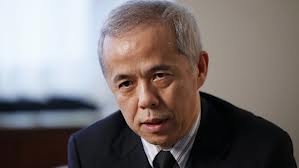
Tepco admits nuke crisis could have been avoided
Tepco admitted that it was aware safety improvements were necessary for the Fukushima nuclear power plant long before the nuclear disaster.
According to Tokyo Electric Power Co.'s internal reform task force, the utility failed to act because it feared the political, economic and legal consequences of implementing new measures.
The task force, headed by Tepco President Naomi Hirose, explained that the utility feared efforts to bolster its nuclear facilities in the event of major natural disasters would spur antinuclear sentiment, interfere with operations and increase litigation risks.
The utility could have mitigated the impact of the Fukushima meltdowns if it had diversified the plant's power and cooling systems by paying closer heed to international standards and recommendations, the task force said.
Tepco also should have trained its employees in practical crisis-management skills, rather than conducting obligatory safety drills as a mere formality, it added.
"Looking back on the accident, the problem was that preparations were not made in advance," said the task force.
"Could necessary measures have been taken with previous tsunami evaluations? It was possible to take action by introducing more extensive safety measures," it concluded.
The admissions mark a major reversal for Tepco, which had defended its preparedness and crisis management since the March 2011 natural disasters knocked out power to the Fukushima No. 1 plant, resulting in the triple meltdowns, massive evacuations and decontamination work that will take decades to complete.
The statement was released after Tepco's Nuclear Reform Monitoring Committee, headed by former U.S. nuclear regulatory chief Dale Klein, held its inaugural meeting Friday. The five-member committee was set up to monitor the task force's reform plans.
For more.























 Advertise
Advertise







